- 865 Allian865 Alliance
- AAFCAAFC Lumberjills
- AcademicaAcademica Soccer Club
- AGCFAGC Football
- AHFCRAHFC Royals
- AHFCAHFC Royals Women
- AFCAlabama FC
- ARAlbany Rush
- ASDALBION San Diego
- AFCAlbuquerque FC
- ARAlexandria Reds
- ACSAlta California Sol
- ACAmbassadors Cleveland
- Arizona ArArizona Arsenal Soccer Club
- ASBArlington Soccer Blue
- ASRArlington Soccer Red
- ACSCAsheville City SC
- ASCAthena Soccer Club
- Atlanta FiAtlanta Fire United
- ACFCAtomic City FC
- AustinRiseAustin Rise FC
- BatCo FCBat Country FC
- BRUBaton Rouge United
- BUSCBavarian United SC
- BASBay Area Surf
- BCUBC United
- BFCBeach Futbol Club
- BeadlingSCBeadling Soccer Club
- BRSCBluffton Rush SC
- BCUBoulder County United
- BSCBreakaway SC
- BrooklynBrooklyn City F.C.
- BBBroomfield Burn
- BRSCBRSC United
- CSCalifornia Storm
- CCCCape Coral Cyclones
- CFCCarolina FC
- CIUCentral Illinois United
- CUCentury United
- Red DevilsChallenge Red Devils
- CFCharleston Fleet FC
- CDACharlotte Development Academy
- CECharlotte Eagles
- CFCChattanooga FC
- CRWChattanooga Red Wolves SC
- CCSCChicago City SC
- CDLChicago Dutch Lions FC
- CH ACChicago House AC
- CK FCChicago KICS Football Club
- CRSRChicago Red Stars Reserves
- CRU23Chicago Rush U23
- CSFCCincinnati Sirens FC
- SSCCity SC
- CSC UtahCity SC Utah
- CSCClarkstown Soccer Club
- CE SAClassics Elite SA
- CKFCClermont Kicks FC
- CACleveland Ambassadors
- BlizzardColorado Blizzard FC
- CPColorado Pride
- CRWColorado Rapids Women
- CRColorado Rush
- CEFCColumbus Eagles FC
- CFC SACorinthians FC of San Antonio
- CorktownCorktown WFC
- CJCroatia Juniors
- CUFCCultures United Football Club
- DCFCDade County Football Club
- DFFCDakota Fusion FC
- DDLDayton Dutch Lions FC
- DECATURDECATUR FC
- DODelaware Ospreys
- DMMWDes Moines Menace Women
- DDFCDesert Dreams F.C.
- DVWDiablo Valley Wolves
- DKSCDKSC BADTOP
- DU SCDowntown United Soccer Club
- EFCEastside FC
- EDAIIEDA II
- EPSEl Paso Surf
- EDAElite Development Academy
- EFEmerald Force
- EREmpire Revs
- Erie FCErie FC
- ETFCAEugene Timbers FC Azul
- FCAFC Arizona
- FCBFC Berlin
- FCB WomenFC Birmingham
- FCDWFC Dallas Women
- FCDFC Davis
- FC DFC Dayton
- FCGSFC Golden State
- MTFC Milwaukee Torrent
- FCMFC Monmouth
- N WolvesFC Nashville Wolves
- FCOFC Omega
- FPWFC Premier
- FCPFC Pride
- FCPFC PrimeTime
- SpiritFC Spirit
- FCSFC Surge
- FCTWFC Tucson
- FCTFC Tucson
- FC UnitedFC United Cedar Rapids
- FCWFC Wichita
- FSCFever SC
- FIFire & Ice SC
- FSC98Fire SC 98
- FlatironsFlatirons Rush
- FESAFlorida Elite Soccer Academy
- FGCDLFCFlorida Gulf Coast Dutch Lions FC
- FKFlorida Krush
- FPF.C.Florida Premier F.C.
- FPFCFlorida Premier FC
- FRFlorida Roots
- FTSCFlorida Tropics SC
- FFCForce FC New York
- FWVFort Worth Vaqueras
- FSAFox Soccer Academy
- FAFram Ajax
- FFFCFresno Freeze FC
- FusionFusion FC
- FutboleraFutbolera Select
- GIGeorgia Impact
- GToledo FCGreater Toledo Futbol Club
- GBGGreen Bay Glory
- GEAGretna Elite Academy
- GriffinsGriffins FC
- GFCGriffins FC
- GCUGulf Coast United
- HFCHattiesburg FC
- HFCHershey FC
- HFCTHEX FC Tempest
- CobrasIllinois Lady Cobras
- ILCFCImperial Lake Charles FC
- ICIndependence Central
- INIndependence North
- ISIndependence South
- IDF.CIndios Denver FC
- ISFCIndy Saints FC
- IACInter AC (Calcio Unito Internazionale AC)
- ICAAInternacional Club Atletico
- ICAGInternacional Club Atletico CA/G
- ISCInternationals SC
- Iowa RaptoIowa Raptors FC
- IRIron Rose FC
- ISCGISC Gunners FC
- Jksn IgnJackson Ignite
- JacksonvilJacksonville Armada FC
- Joy AthletJoy AC
- JunctionJunction FC
- KCCIIKansas City Current II
- KCCKC Courage
- KFCKeystone FC
- KCUKingston Capitals
- LAKRLA Krewe Rush
- LR FCLa Roca FC
- LASLA Surf Soccer Club
- LVFCLA Villa FC
- LSFCLadies Steel FC (UPSL)
- LVFCLady Victory FC
- LamorindaLamorinda United
- LVLLas Vegas Legends
- LVQ11Las Vegas Q11
- LW76Legacy W76
- LFCLegends FC
- LRRLittle Rock Rangers
- LSCLonestar SC
- LIFLong Island Fury
- Lou FuszLou Fusz Athletic
- LVURLVU Rush
- Manitou FCManitou F.C.
- MUSCMankato United Soccer Club
- MFCSMarin Football Club Siren
- MFAFCMatch Fit Academy FC
- McLeanMcLean Soccer
- MLMemphis Lobos
- MVHFCMerrimack Valley Hawks FC
- MFCMetaSport FC
- MUFCMiami United FC
- MuskratsMidwest Select SA Muskrats
- MC AFCMilwaukee City AFC
- MDLFCMinnesota Dutch Lions FC
- MTAMinnesota Thunder
- MK FCMISS KICK FC
- MBCSMississippi Blues SC
- MO ReignMissouri Reign
- MNBFCMN Bliss FC
- MCFCMotor City FC
- MVLAWMVLA Wolves
- Napa ValleNapa Valley 1839 FC
- NRFCNashville Rhythm FC
- NCFCNCFC
- NRFANeuse River Futbol Alliance
- NFCNevada Futbol Club
- NJANew Jersey Alliance FC
- NYACNew York Athletic Club
- NYDLFCNew York Dutch Lions FC
- NYSNew York Shockers
- N1812Niagara 1812
- NJWSCCSNJ Wizards SC
- NASCNorth Alabama SC
- NCFNorth Carolina Fusion U-23
- NCRNorthern Colorado Rain FC
- NUUNorthern Utah United
- NSAU23NSA U23
- OCUOak City United
- ODFCUSAODFC Cesena
- OCFCOklahoma City FC
- OPSAMOPSA Magic
- OSAOSA XF
- PACPA Classics
- PACNWPacNW
- PPateadores
- PCMOBAPeachtree City MOBA
- PFPenn Fusion SA
- PFCAPensacola FC
- PFCAPensacola FC Academy
- PCPeoria City
- PLSPhiladelphia Lone Star FC
- PUNLPhiladelphia Ukrainian Nationals - Liberty
- PHXHFCPHX Heat FC
- PHSCPittsburgh Hotspurs FC
- PNSCPlayers North Soccer Club
- PSCPlayers SC
- PRPleasanton RAGE
- PC FCPort City FC
- PTFCIIPortland Thorns FC II
- PDMPrimero de Mayo
- PSAPSA Monmouth
- PSD APSD Academy
- PRPFCPuerto Rico Pride FC
- QC RushQuad Cities Rush
- RFCRADD FC
- RLFCRangers Ladies FC
- RUACReading United A.C.
- RCNJReal Central NJ
- RERebels Empire
- RSCRebels Soccer Club
- RIRFCRI Rogues FC
- RNYFCRochester New York FC
- RAZRoyals AZ
- URSARSL Southern Arizona
- SLSGSCSaint Louis Scott Gallagher SC
- SSCSalvo SC
- SA RunnersSan Antonio Runners
- SASSCSan Antonio Surf
- SDDSan Diego Dons
- SDPLSan Diego Parceiro
- SDSSan Diego SeaLions
- SDSSan Diego Strikers
- SDSSan Diego Surf
- SFESan Francisco Elite Soccer Club
- SFNSan Francisco Nighthawks
- SRFCSan Ramon FC
- SMSSCSanta Maria Synergy SC
- SSSCSavannah Spirit SC
- SCDSSC del Sol
- SCUBSC United Bantams
- SRFCSeattle Reign FC II
- Seminole ISeminole Ice
- SFGSFG Lady Demize
- SUShreveport United
- SFC92Side FC 92
- SC SolSioux City Sol
- Sioux FallSioux Falls City FC
- SJEBFCSJEB FC
- SCUFCSo Cal Union FC
- SoCalSoCal Dutch Lions FC
- SCRFCSoCal FC
- SCRFCSoCal Reds FC
- SHAFCSoccer House Academy FC
- SCFCSoda City FC
- SCASouthern California Eagles
- SSASouthern Soccer Academy
- SSFCSouthStar FC
- SFCBSouthStar FC Black
- SSCSSpokane SC Shadow
- SCTSporting CT
- SSWSporting South Walton
- SPSASportsParadize Soccer Academy
- SLLSt Louis Lions
- St. CroixSt. Croix Legacy
- STASTA
- SunflowerSunflower State FC
- SUSASUSA FC
- TBRTampa Bay Rowdies
- TBUTampa Bay United
- TBDTBD
- Boca BlastTeam Boca Blast
- TSTexas Spurs FC
- TTTexas Titans
- HAThe Houston Aces
- TTFCThe Town FC
- THUSCTHUSC Diamonds
- TLHRTLH Reckoning
- TempoTN Tempo FC
- TFCTorch FC
- TSSFCRTSS FC Rovers
- TTIBTTi Bluebonnets
- TSCTulsa Soccer Club
- UFAUFA Gunners
- UK FCUK F.C.
- U10FCUnion 10 FC
- UKCUnion KC
- USAUnited Soccer Alliance
- UAUtah Arrows SC
- Utah AvalaUtah Avalanche
- URUtah Royals
- URFCRUtah Royals FC Reserves
- USUtah Surf
- VIFCVancouver Island FC
- VTSSRVancouver TSS Rovers
- VVVancouver Victory FC
- VTFVermont Fusion
- VBCFCVirginia Beach City FC
- WFCWake FC
- WDLFCWashington Dutch Lions FC
- WSRWashington Spirit Reserves
- West FloriWest Florida Flames
- WMUWest-Mont United
- WUFCWestchester United F.C.
- WMFCWestside Metros FC
- WFCCWomen's Football Club of Charlotte
- WPSLWomen's Premier Soccer League 2
FEATURE: WOMEN IN THE WPSL
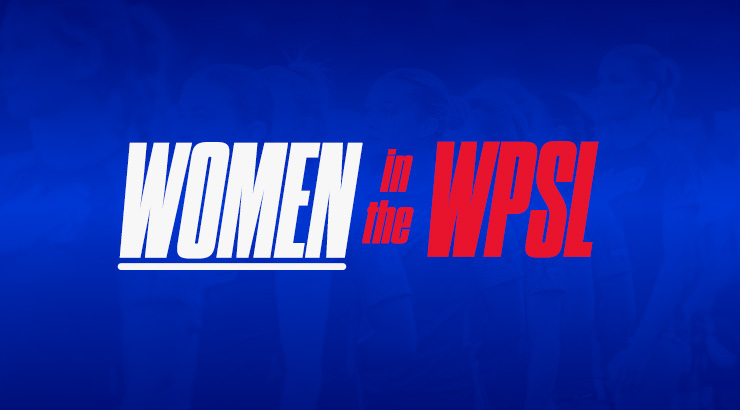
WOMEN IN THE WPSL: A 27-YEAR COMMITMENT TO CHANGING THE GAME FOR THE NEXT GENERATION
WPSL Communications
As the WPSL enters its 27th season, it celebrates the people and events that shaped the league, making it the longest-running women’s soccer league in North America, and the largest women’s soccer league in the world.
From its humble beginnings in 1998 to now, the league has evolved into a juggernaut in women’s sports, on the field and off. This year, the WPSL sees a record number of women-owned, women-led, and women-coached teams.
“The league has grown so much from when I started as a player,” says WPSL Commissioner, Kendra Halterman, who has been with the league in one capacity or another almost from its founding in 1998. Named WPSL Commissioner in 2023 after stints in the league as a conference delegate and associate commissioner, Halterman is the third person to hold the vaunted position, and the first woman.
Halterman was fresh out of high school when she made her first appearance as a player in 2000 with the Utah Spiders — one of the first two expansion teams from outside the California state lines, along with the Vancouver (British Columbia) Angels that joined the league that year. There isn’t a hat Halterman hasn’t worn since first joining the league that watershed year: player, coach, manager, and team owner.
“We’ve seen some incredible progress over the years, including a record number of female league staff members, women’s owned teams, coaches, referees, and women leading their clubs at every level,” she says.
Despite the great progress the WPSL and women’s soccer in general has made over the years, it is widely agreed that there is still a long way to go until women have equal footing within their own game. “We are still not there,” says San Francisco Nighthawks General Manager, Jill Lounsbury.
Lounsbury was already entrenched in the Nighthawks organization when it joined the WPSL in 1998, and she has seen the league and the women’s game grow exponentially over these last 27 years. The Nighthawks are one of the record-high number of women-owned teams in the league this year. Lounsbury started with the club as a volunteer, lending a hand in wherever it was needed, and still does today. “I put on whatever hat is needed to help our players,” she says.
Lounsbury says she got to where she is today, running one of two of the founding WPSL clubs, because of her belief in herself and in the organization’s vision. “More than anything, you have to advocate for yourself and your vision. Never take ‘no’ for an answer,” she says. “Don’t wait for someone else to give you an opportunity. Make the opportunity happen for yourself.”
Women’s soccer pioneers like Lounsbury paved the way for the next generation of women leaders in the game like Lindsay Eversmeyer and Gretchen Hammel, who each ran teams of their own before ascending to positions in the WPSL league office, proudly, even defiantly, paving the way for the next generation leaders in women’s soccer.
A product of the hallowed St. Louis soccer scene, Eversmeyer was a youth and collegiate standout before earning the distinction of being the first woman to earn a contract to play in the Major Indoor Soccer League. After transitioning to the coaching ranks, she owned and was head coach of the WPSL team, Fire & Ice, winning Heartland Conference championships in 2013, 2017, and 2018; Central Region titles in 2013 and 2017, and the WPSL National Championship in 2017. Eversmeyer also earned three conference Coach of the Year nods before being named WPSL Associate Commissioner, overseeing the Central Region, in 2022. Along with her WPSL duties, Eversmeyer serves as the on-field Match Day Analyst for St. Louis City SC of Major League Soccer, and for the past three years has coached the men’s team at Southwestern Illinois College.
Eversmeyer has broken barriers—particularly those based on gender—throughout her career. She sees it as part of the passing of the baton to the next generation.
“We are breaking barriers so they don’t have to,” she says. “In soccer, we are now coaching men. We are coaching our country’s National Teams. We are President of U.S. Soccer. It’s important that we keep shattering those glass ceilings so the next generation doesn't have to.”
Eversmeyer’s advice for those climbing the ladder behind her is to challenge people’s assumptions of them. “I ignored all the haters and decided to focus on what I was passionate about, developing and guiding the next generation,” she says. “It's imperative that these young girls today have strong role models to look up to and aspire to leadership roles, paving the way for a more equitable future.”
Like Eversmeyer, Hammel came in owning and coaching successful WPSL teams. Her first introduction to the league came as a player, making her WPSL debut for Chattanooga Football Club in 2014. The following year, along with her responsibilities on the field, she began to work behind the scenes. She was general manager of the club when it earned WPSL Franchise of the Year honors in 2018. The following year, Hammel launched Chattanooga Lady Red Wolves SC, where she served as owner and general manger through 2022, winning the Southeast Conference in the club’s debit season.
“There has been real progress made for female GMs, owners, and coaches over the last few years, because we are representing a women’s product,” Hammel says. “It’s incredibly valuable to have women making decisions for women.”
Now an Associate Commissioner for the WPSL, Hammel oversees the South Region, where the many lessons she learned over the years as a player, coach, general manager, and team owner are put into play as she helps coaches and team administrators prepare for the 2025 season.
“I’ve done what they are doing. I understand the challenges they are facing, particularly the women in those positions. Women’s soccer is still a male-dominated field. At every step I had to prove that I was qualified, that I belonged in those positions,” Hammel said. “Seeing the value of women in women’s sports is important for the next generation of the game’s leaders coming up behind us. That they see women in these roles now, so they can take those next steps.”
Five-time WPSL Champion, California Storm Executive Director, and former head coach, Jamie Levoy, has relished the shift in women’s sports, and women’s soccer in particular.
“The landscape is definitely changing,” she says. Levoy started out as a volunteer with the club that has been home to some of the most iconic names in the women’s game, putting in shifts in the concession stand before she found a place on the technical staff of one of the true pioneers in women’s soccer, Jerry Zanelli.
Tired of the inadequacies and inequalities women’s soccer teams faced, Zanelli founded the WPSL to provide more and better opportunities for women in the game.
“Probably the most important thing I learned from him was not to take ‘no’ for an answer,” Levoy says. “He was always going to find a way to move the women’s game forward.”
By the time Zanelli’s health began to decline, Levoy was his trusted deputy. She took over as head coach, executive director, and advocate of the women’s game. As head coach, she won WPSL titles in 2022 and 2024, making the Storm one of the most respected and emulated programs in the country.
“Even after everything we have done, there are still prejudices. You just have to push through it. You have to keep going after what you deserve, so we can create more opportunities, not just now, but for those who come after you.”
Erin Webb is part of the next generation of team owners now making waves in the WPSL. She is part of a five-women group that founded Austin Rise FC three years ago. Since joining the league, the Rise quickly became one of the league’s cornerstone clubs, winning the Lone Star Conference and advancing to the South Region Final in just the club’s second year, falling to 2023 WPSL National Champions and 2024 WPSL national runner-up, Charlotte Eagles.
The club is the brainchild of Webb, Amanda Lisberger, Rachelle D’Amico, Bethany Cyrtmus-Davaul, Katie Reed, and Christiane Lessa, all of whom learned valuable lessons from their involvement with prior clubs.
“We came together and said, let’s do this, but make it a much better experience than we’ve had in the past. We learned from others’ mistakes,” Webb says. “We came in with an understanding of how the experience should be. From the start we’ve worked hard to make it as professional as possible.
Webb says the Rise will work tirelessly to continue to set the standard for women’s soccer in the Southwest, and in the country. The club has already signed a letter of interest to play in the WPSL PRO when it launches next year, and the club has entered a team in The Soccer Tournament this summer, a seven-a side tournament, with the winners grabbing a million-dollar first prize along with international acclaim, which Webb notes would be vital as they build towards the future.
“Our goal is to continue to grow women’s soccer,” Webb says. “The sport is growing. To have women in leadership roles is so important: the CEOs, the marketing people, the people writing the books, handling the budget. These types of leaps and risks that we’re taking are for women, by women, so the next generation can come and build on what we’ve done.”
 WPSL
WPSL 865 Alliance
865 Alliance AGC Football
AGC Football AHFC Royals
AHFC Royals Albany Rush
Albany Rush ALBION San Diego
ALBION San Diego Alexandria Reds
Alexandria Reds Ambassadors Cleveland
Ambassadors Cleveland Arizona Arsenal Soccer Club
Arizona Arsenal Soccer Club Arlington Soccer Blue
Arlington Soccer Blue Arlington Soccer Red
Arlington Soccer Red Atlanta Fire United
Atlanta Fire United Austin Rise FC
Austin Rise FC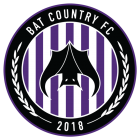 Bat Country FC
Bat Country FC Baton Rouge United
Baton Rouge United Bavarian United SC
Bavarian United SC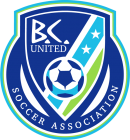 BC United
BC United Beach Futbol Club
Beach Futbol Club Beadling Soccer Club
Beadling Soccer Club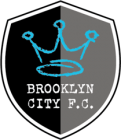 Brooklyn City F.C.
Brooklyn City F.C. Broomfield Burn
Broomfield Burn California Storm
California Storm Cape Coral Cyclones
Cape Coral Cyclones Carolina FC
Carolina FC Challenge Red Devils
Challenge Red Devils Charlotte Eagles
Charlotte Eagles Chattanooga FC
Chattanooga FC Chicago House AC
Chicago House AC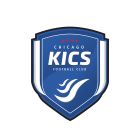 Chicago KICS Football Club
Chicago KICS Football Club City SC Utah
City SC Utah Clarkstown Soccer Club
Clarkstown Soccer Club Classics Elite SA
Classics Elite SA Cleveland Ambassadors
Cleveland Ambassadors Colorado Blizzard FC
Colorado Blizzard FC Colorado Pride
Colorado Pride Columbus Eagles FC
Columbus Eagles FC Corinthians FC of San Antonio
Corinthians FC of San Antonio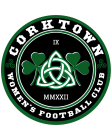 Corktown WFC
Corktown WFC Dade County Football Club
Dade County Football Club Dakota Fusion FC
Dakota Fusion FC Dayton Dutch Lions FC
Dayton Dutch Lions FC DECATUR FC
DECATUR FC Delaware Ospreys
Delaware Ospreys Desert Dreams F.C.
Desert Dreams F.C. DKSC BADTOP
DKSC BADTOP Downtown United Soccer Club
Downtown United Soccer Club El Paso Surf
El Paso Surf Erie FC
Erie FC FC Birmingham
FC Birmingham 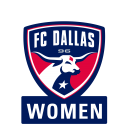 FC Dallas Women
FC Dallas Women FC Davis
FC Davis FC Dayton
FC Dayton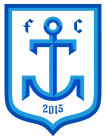 FC Milwaukee Torrent
FC Milwaukee Torrent FC Monmouth
FC Monmouth FC Nashville Wolves
FC Nashville Wolves FC Premier
FC Premier 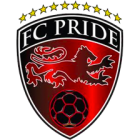 FC Pride
FC Pride FC PrimeTime
FC PrimeTime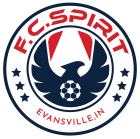 FC Spirit
FC Spirit FC Surge
FC Surge FC Tucson
FC Tucson FC Wichita
FC Wichita Fever SC
Fever SC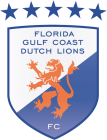 Florida Gulf Coast Dutch Lions FC
Florida Gulf Coast Dutch Lions FC Florida Krush
Florida Krush Florida Premier FC
Florida Premier FC Florida Roots
Florida Roots Force FC New York
Force FC New York Fort Worth Vaqueras
Fort Worth Vaqueras Fresno Freeze FC
Fresno Freeze FC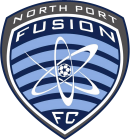 Fusion FC
Fusion FC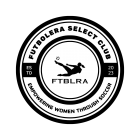 Futbolera Select
Futbolera Select Georgia Impact
Georgia Impact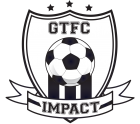 Greater Toledo Futbol Club
Greater Toledo Futbol Club Green Bay Glory
Green Bay Glory Griffins FC
Griffins FC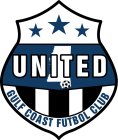 Gulf Coast United
Gulf Coast United Hattiesburg FC
Hattiesburg FC Hershey FC
Hershey FC HEX FC Tempest
HEX FC Tempest Indios Denver FC
Indios Denver FC Internationals SC
Internationals SC Iowa Raptors FC
Iowa Raptors FC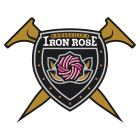 Iron Rose FC
Iron Rose FC Jackson Ignite
Jackson Ignite Jacksonville Armada FC
Jacksonville Armada FC Joy AC
Joy AC Junction FC
Junction FC Kansas City Current II
Kansas City Current II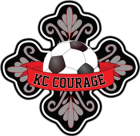 KC Courage
KC Courage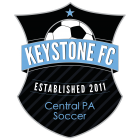 Keystone FC
Keystone FC  Kingston Capitals
Kingston Capitals LA Krewe Rush
LA Krewe Rush La Roca FC
La Roca FC LA Surf Soccer Club
LA Surf Soccer Club Lamorinda United
Lamorinda United Lonestar SC
Lonestar SC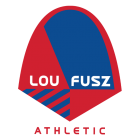 Lou Fusz Athletic
Lou Fusz Athletic LVU Rush
LVU Rush Manitou F.C.
Manitou F.C. Mankato United Soccer Club
Mankato United Soccer Club McLean Soccer
McLean Soccer Merrimack Valley Hawks FC
Merrimack Valley Hawks FC MetaSport FC
MetaSport FC Midwest Select SA Muskrats
Midwest Select SA Muskrats Milwaukee City AFC
Milwaukee City AFC Minnesota Dutch Lions FC
Minnesota Dutch Lions FC Minnesota Thunder
Minnesota Thunder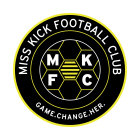 MISS KICK FC
MISS KICK FC Mississippi Blues SC
Mississippi Blues SC Missouri Reign
Missouri Reign MN Bliss FC
MN Bliss FC Napa Valley 1839 FC
Napa Valley 1839 FC Nashville Rhythm FC
Nashville Rhythm FC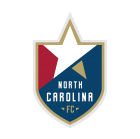 NCFC
NCFC Neuse River Futbol Alliance
Neuse River Futbol Alliance Nevada Futbol Club
Nevada Futbol Club New York Athletic Club
New York Athletic Club New York Dutch Lions FC
New York Dutch Lions FC New York Shockers
New York Shockers Niagara 1812
Niagara 1812 NJ Wizards SC
NJ Wizards SC  Northern Colorado Rain FC
Northern Colorado Rain FC Northern Utah United
Northern Utah United Oklahoma City FC
Oklahoma City FC PA Classics
PA Classics Penn Fusion SA
Penn Fusion SA Pensacola FC
Pensacola FC Pensacola FC Academy
Pensacola FC Academy Peoria City
Peoria City Philadelphia Ukrainian Nationals - Liberty
Philadelphia Ukrainian Nationals - Liberty PHX Heat FC
PHX Heat FC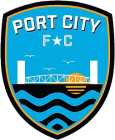 Port City FC
Port City FC Portland Thorns FC II
Portland Thorns FC II PSD Academy
PSD Academy Quad Cities Rush
Quad Cities Rush Reading United A.C.
Reading United A.C. Real Central NJ
Real Central NJ Rebels Soccer Club
Rebels Soccer Club RI Rogues FC
RI Rogues FC Rochester New York FC
Rochester New York FC Royals AZ
Royals AZ RSL Southern Arizona
RSL Southern Arizona  Saint Louis Scott Gallagher SC
Saint Louis Scott Gallagher SC Salvo SC
Salvo SC San Antonio Runners
San Antonio Runners San Diego Dons
San Diego Dons San Diego Parceiro
San Diego Parceiro 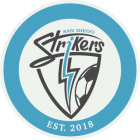 San Diego Strikers
San Diego Strikers San Diego Surf
San Diego Surf San Francisco Elite Soccer Club
San Francisco Elite Soccer Club San Francisco Nighthawks
San Francisco Nighthawks San Ramon FC
San Ramon FC SC del Sol
SC del Sol Seattle Reign FC II
Seattle Reign FC II Seminole Ice
Seminole Ice Shreveport United
Shreveport United Side FC 92
Side FC 92 Sioux Falls City FC
Sioux Falls City FC SJEB FC
SJEB FC So Cal Union FC
So Cal Union FC SoCal Dutch Lions FC
SoCal Dutch Lions FC Soda City FC
Soda City FC Southern California Eagles
Southern California Eagles SouthStar FC
SouthStar FC Spokane SC Shadow
Spokane SC Shadow Sporting CT
Sporting CT St. Croix Legacy
St. Croix Legacy STA
STA  Sunflower State FC
Sunflower State FC SUSA FC
SUSA FC The Town FC
The Town FC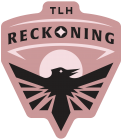 TLH Reckoning
TLH Reckoning TN Tempo FC
TN Tempo FC UFA Gunners
UFA Gunners UK F.C.
UK F.C. Union 10 FC
Union 10 FC Union KC
Union KC United Soccer Alliance
United Soccer Alliance Utah Avalanche
Utah Avalanche Utah Surf
Utah Surf 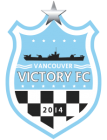 Vancouver Victory FC
Vancouver Victory FC Washington Dutch Lions FC
Washington Dutch Lions FC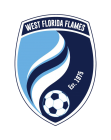 West Florida Flames
West Florida Flames West-Mont United
West-Mont United Westside Metros FC
Westside Metros FC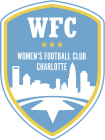 Women's Football Club of Charlotte
Women's Football Club of Charlotte Women's Premier Soccer League 2
Women's Premier Soccer League 2


